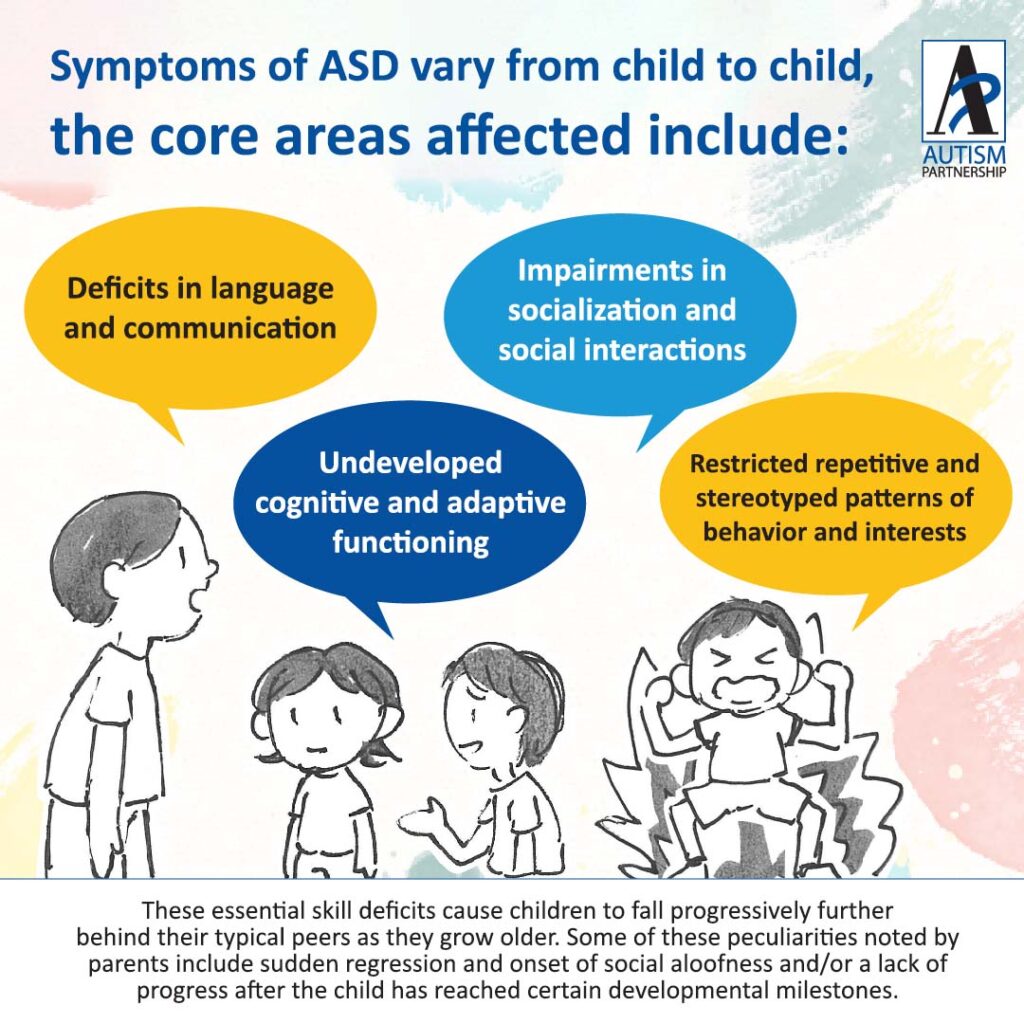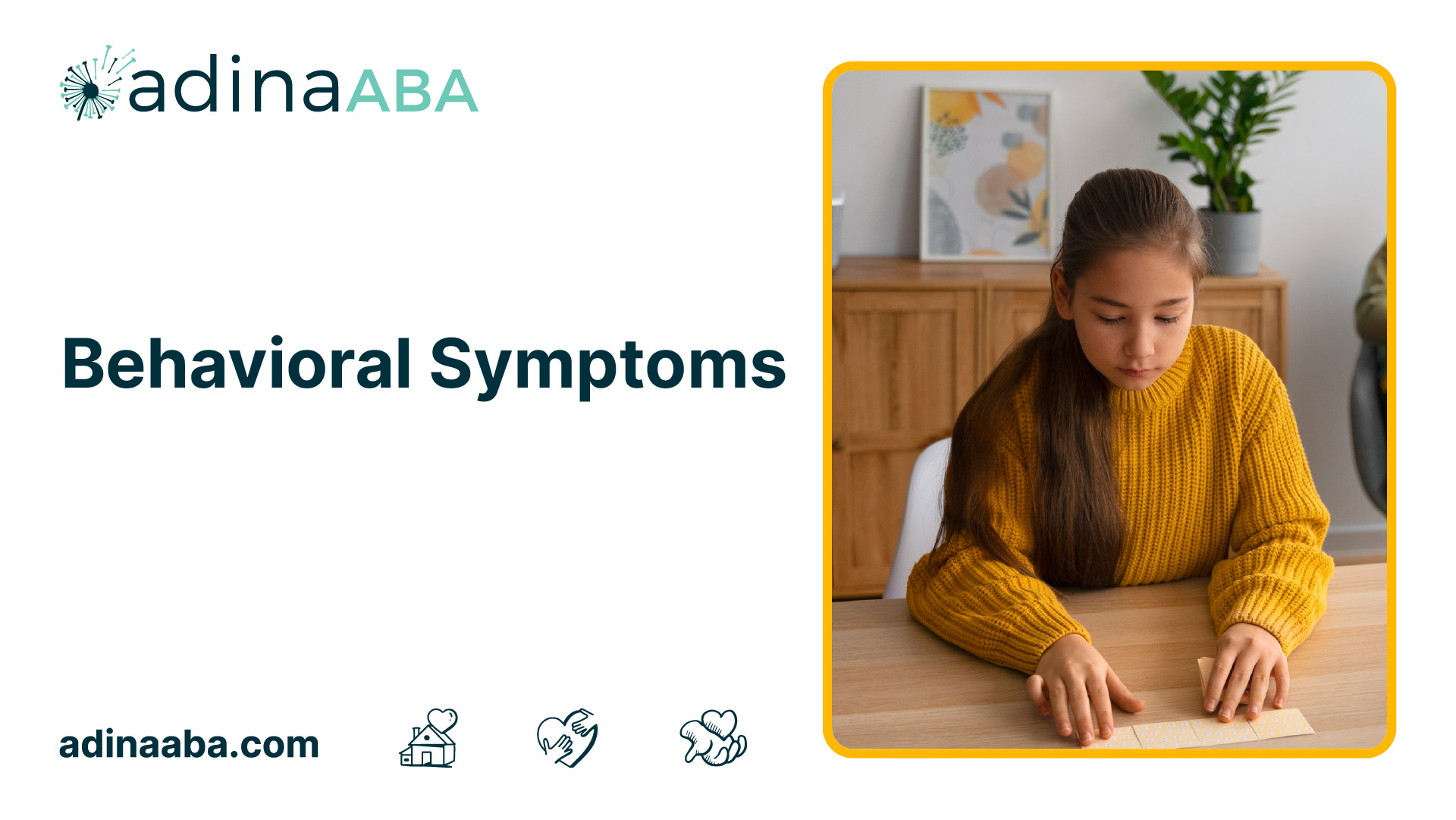Trick Signs and Symptoms to Recognize in Individuals With Behavior Autism
When you run into a person with behavior autism, acknowledging crucial indications and symptoms is important. Additionally, sensory level of sensitivities can lead to frustrating experiences.
Difficulties in Social Interactions
When you connect with someone on the autism spectrum, you may observe they battle with social signs and communication. These challenges can make social interactions feel frustrating for them. You may see them preventing eye get in touch with or standing too close or too away throughout conversations, which can develop misunderstandings. They might not choose up on body movement or facial expressions, making it harder for them to determine exactly how others are really feeling.
Furthermore, you might find that they like routines and acquainted settings, which can limit their willingness to involve in new social scenarios. They could talk about their rate of interests in fantastic detail without discovering if you're interested when they do engage. This can lead to one-sided conversations that leave you really feeling disconnected. Recognizing these challenges can help you approach communications with empathy and patience, promoting a much more comfy atmosphere for both of you.
Problem With Verbal and Non-Verbal Communication

Non-verbal communication can be a lot more tough. You may see an absence of eye get in touch with or minimal use motions, which can make interactions really feel uncomfortable. Face expressions may not constantly align with the discussion, causing confusion regarding their sensations. Acknowledging these signs is important, as it helps you much better assistance and engage with people on the autism spectrum. By comprehending their communication challenges, you can cultivate much more purposeful connections and provide a more helpful setting.
Recurring Behaviors and Routines
Communication difficulties often go along with various other signs of autism, such as repetitive habits and a solid preference for routines. You might discover that individuals with autism commonly participate in specific, repeated actions, like hand-flapping, rocking, or repeating expressions. These actions can give comfort and a sense of control in a typically frustrating globe.
When they follow a structured schedule,Routines are just as vital; several people thrive. You might locate that adjustments to these regimens can bring about substantial distress. If they have an everyday ritual of consuming morning meal at a certain time or adhering to a specific route to school, any kind of disruption can trigger stress and anxiety.
Acknowledging these patterns helps you recognize their actions and supply support. By accommodating their demand for regular and permitting repeated activities, you can produce a much more comfortable environment that alleviates their difficulties.
Sensory Level Of Sensitivities

Usual Sensory Triggers
Sensory level of sensitivities can significantly impact every day life for individuals with autism, as certain stimulations commonly trigger overwhelming responses. Usual sensory triggers consist of loud noises, brilliant lights, and solid scents. You might see that unexpected audios, like alarms or alarms, trigger stress and anxiety or distress. Fluorescent illumination in stores can feel uncomfortable and severe. Textures can likewise play a substantial duty; harsh fabrics or specific food appearances might be intolerable for you. Additionally, crowded places can overwhelm your detects, making it difficult to loosen up or concentrate. Understanding these triggers can aid you handle look at here now your setting much you could try here better. By understanding what impacts you, you can take steps to minimize discomfort and improve your daily experiences.
Behavior Feedbacks Described
Understanding your behavioral feedbacks to sensory level of sensitivities is essential, as they commonly reveal how you interact with the world. You may additionally discover on your own seeking particular sensory experiences, like deep pressure or quiet settings, to aid ground yourself. Acknowledging these patterns helps you comprehend your requirements better and can guide how you interact them to others.
Coping Techniques Introduction
Identifying your sensory level of sensitivities is simply the very first step; currently it's time to explore coping strategies that can help you take care of those experiences effectively. Start by creating a sensory toolkit customized to your requirements. Establishing a structured regimen can additionally supply predictability, minimizing stress and anxiety around sensory overload.
Restricted Interests and Focus
While lots of individuals develop a wide variety of rate of interests, those with autism commonly demonstrate limited rate of interests and an intense concentrate on specific subjects. You might see that a person with autism can invest hours delving into their favored subject, whether it's a particular kind of train, a certain flick, or a scientific principle. This intense focus isn't simply a pastime; it can become a main part of their identity and social communications.
You may locate that conversations rotate around these rate of interests, and they may battle to take part in more comprehensive topics. For them, these focused rate of interests offer convenience and a sense of proficiency. While it is very important to encourage expedition of new subjects, valuing their enthusiasms is equally essential. By recognizing and acknowledging these restricted passions, site web you can cultivate an encouraging environment where they really feel valued and recognized, enabling for more significant links and interactions.
Emotional Law Problems
People with autism usually encounter difficulties in emotional policy, which can be influenced by their intense concentrate on details interests. You might notice that when a person is deeply involved in a favored activity, they can experience solid emotions, whether exhilaration or aggravation. When things don't go as intended., this intensity often makes it difficult for them to change gears or manage their sensations - Autism Spectrum Therapies.

Irregularity in Developing Milestones
When it comes to developmental landmarks, you'll notice that individuals with autism commonly show a wide variety of irregularity. Some might strike milestones on schedule, while others could drag or progress at a different speed. You may see a child stand out in language abilities however battle with social communications. This inconsistency can be complex, as conventional criteria don't always apply.
It's vital to identify that each person's trip is special. Some may develop complex skills early, only to deal with obstacles later on. Others could take longer to attain fundamental milestones but after that flourish in certain areas. Observing these patterns can help you understand their toughness and requires better.
Regularly Asked Concerns
Just How Is Autism Detected in Kid and Adults?
To detect autism in kids and adults, specialists examine behavior, interaction skills, and social communications. If a private meets the standards for autism range condition., they frequently make use of standardized examinations, interviews, and monitorings to establish.
Exist Different Sorts Of Autism Spectrum Disorders?
Yes, there are various types of autism range disorders, consisting of Asperger's syndrome and prevalent developmental disorder-not or else specified. Each type differs in seriousness and attributes, so comprehending these differences can aid you better support people with autism.
What Treatments Are Efficient for Individuals With Autism?
When thinking about effective treatments for individuals with autism, you'll find choices like Applied Behavior Evaluation, speech therapy, and job-related therapy. Each strategy can help boost interaction, social abilities, and everyday working customized to individual requirements.
Can People With Autism Lead Independent Lives?
Yes, people with autism can lead independent lives. With the right support, abilities training, and sources, you can aid them establish self-sufficiency, handle daily tasks, and grow in various atmospheres, promoting their freedom.
Just How Can Families Support Liked Ones With Autism?
You can sustain your enjoyed ones with autism by developing an organized environment, encouraging their interests, exercising perseverance, fostering communication, and promoting social abilities. Commemorate their success, no matter how small, and build a helpful neighborhood.
Although several people on the autism range can recognize and make use of language, they frequently face significant challenges with both verbal and non-verbal communication. Recognizing these signs is important, as it helps you better assistance and involve with people on the autism range. You might notice that individuals with autism often involve in particular, repetitive actions, like hand-flapping, rocking, or duplicating expressions.Sensory sensitivities can significantly affect daily life for people with autism, as specific stimuli frequently cause frustrating responses.When it comes to developmental landmarks, you'll observe that individuals with autism typically show a broad array of irregularity.